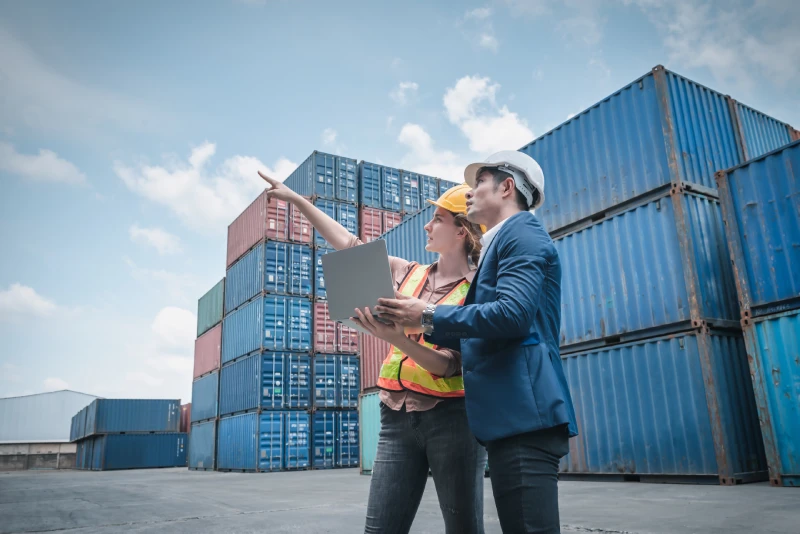
Out of hours support, we work 7 days a week
Empowering Cross-Border Novices: Assisting Businesses New to International Trade
Expert Consultancy for Procedure Codes and Tariff Classification
Air freight customs clearance process is a critical step in international trade, ensuring that all goods transported by air comply with customs regulations. This process involves the preparation and submission of necessary documentation for imports and exports, requiring meticulous coordination with customs authorities and international carriers. In the UK, customs clearance is mandatory for all goods moving between Great Britain, the European Union, and countries outside the EU. By adhering to customs regulations, including the proper declaration and payment of customs duty taxes, businesses can avoid delays, penalties, and ensure smooth transit of their air freight shipments.
The air freight customs clearance process involves several key steps that must be meticulously followed to ensure compliance and efficiency:
Air freight customs clearance requires accurate and complete documentation to ensure compliance with customs regulations. It is also important to use the official HM Revenue & Customs exchange rate for converting the value of goods into UK Pounds Sterling when estimating import customs VAT and duty costs. The essential documents include:

Classification and tariffs are fundamental components of the customs clearance process. Classification involves assigning a Harmonized System (HS) code to goods, which determines the applicable customs duty rate. Tariffs refer to the taxes imposed on imported goods, which vary based on the classification.
In the UK, the UK Trade Tariff is used to classify goods and determine the applicable customs duty rate. This tariff, based on the HS code, provides a comprehensive list of goods and their corresponding duty rates. Proper classification is crucial for importers and exporters, as it helps navigate the air freight customs clearance process efficiently and avoid costly errors. Understanding the UK customs tariff heading and ensuring accurate classification can significantly impact the overall cost and compliance of the shipment.
Navigating the air freight customs clearance process can present several challenges, including:
Employing a customs broker can offer numerous benefits for importers and exporters. A customs broker is a licensed professional specializing in customs clearance, providing valuable expertise and support throughout the process. Here are some key benefits of using a customs broker:
Working with a customs broker can streamline the customs clearance process, making it more efficient and less stressful for businesses involved in international trade.
Compliance is a critical aspect of customs clearance, as failure to adhere to relevant regulations and procedures can result in significant penalties and fines. Importers and exporters must ensure they comply with all applicable laws, including those related to customs clearance, taxation, and trade.
In the UK, non-compliance can lead to severe consequences, including penalties, fines, and even criminal prosecution. Therefore, it is essential for businesses to work with experienced customs brokers who can navigate the complex customs clearance process and ensure compliance with all regulations. By prioritizing compliance, businesses can avoid legal issues, maintain a good standing with customs authorities, and ensure the smooth transit of their goods.
At OTS BROKER, we have extensive experience in handling air freight customs clearance across multiple industries. Manchester International Airport teams work closely with us to ensure smooth and efficient processing. Our team is proficient in managing import and export declarations, ensuring compliance with all relevant regulations. Our team of licensed customs brokers ensures that all your shipments are processed quickly and in compliance with relevant regulations. We offer:
Choose OTS BROKER for a seamless customs clearance experience for your air freight shipments.
The cost of air freight customs clearance varies depending on the type of goods, their value, origin, and destination. UK sterling customs play a significant role in ensuring accurate currency conversion for duties and taxes. The commercial invoice is a crucial document that reflects the value and description of the goods, playing a significant role in determining duties and taxes. Other factors include duties, taxes, and the fees charged by customs brokers. At OTS!BROKER, we provide transparent pricing, tailored to your specific needs, ensuring there are no hidden costs.
Air freight customs clearance can take anywhere from a few hours to several days, depending on the complexity of the shipment, the country of origin, and the accuracy of the provided documentation. At major airports like London Heathrow, the efficiency of customs clearance can be particularly crucial. Accurate and complete customs declarations are essential for ensuring a swift customs clearance process. Working with an experienced customs broker, like OTS!BROKER, can significantly reduce the time taken by ensuring all paperwork is correctly prepared and submitted promptly.
Air freight customs clearance affect importers, exporters, freight forwarders, and any businesses involved in cargo and international shipping. Failure to comply with customs regulations can lead to delays, financial penalties, or even confiscation of goods. At OTS BROKER, we work closely with all parties to ensure timely clearance and hassle-free shipments.
Customs clearance, often facilitated through customs brokerage services, is typically carried out by licensed customs brokers or agents who are well-versed in local and international trade laws. These professionals act on behalf of importers and exporters, facilitating the smooth entry or exit of goods through air freight.
At OTS BROKER, our experienced team takes care of all customs procedures, ensuring compliance with regulations and minimizing the risk of penalties or delays.
Air freight customs clearance follows a standardized shipping process:
OTS BROKER ensures that this process is managed efficiently, reducing potential delays.